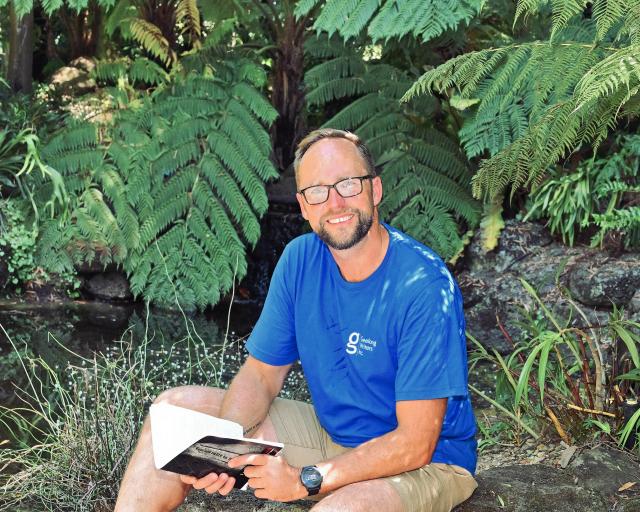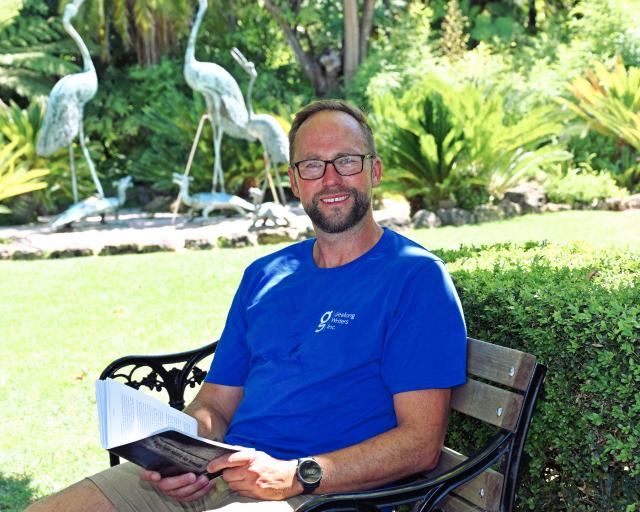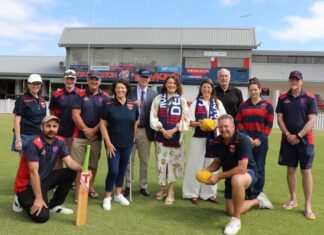Stephane Vander Bruggen is a five time ITU world champion triathlete and performance coach who once, seemingly, had it all. He spoke to Matt Hewson about his fall from grace, his journey to recovery and the autobiography he is about to release.
Growing up in Brussels, Belgium, Stephane Vander Bruggen’s childhood was, as he calls it, one of privilege.
“I had an amazing childhood; my parents both had good jobs, we had an amazing house, amazing holidays, we never lacked for anything,” he said.
Stephane grew up with the finest clothes, went to the best school, learned four languages and enjoyed sport with his parents and sisters.
Then, when he was 12, a cruel twist of fate turned Stephane’s world upside down.
Stephane’s mother lost her twin brother to cancer and was diagnosed with the disease herself just months later.
“She survived but…my mum turned from the most beautiful mum – sporty, intelligent, funny, good-looking – to a drug addict, alcohol and medication dependent,” he said.
“I lost my mum pretty much on the spot. And my poor dad…the same thing happened to his mum, he didn’t know how to deal with it so he rejected my mum and became very emotionally unavailable, verbally and physically abusive to us.
“Here I was, a little 12-year-old living the dream, and overnight I pretty much lost my mum and dad and had to look after my little sister. I became completely lost and had to grow up overnight.
“It became extremely difficult to live with my mum, because her alcohol and drug addiction was extreme, so I’d often call my dad to pick us up. It was hard to deal with that as a 12 year old.”
In the late 1980s, mental health awareness wasn’t particularly widespread, so Stephane was left to navigate his own way through his pain and uncertainty.
One of the ways he coped was focusing on sport. His discipline of choice was triathlon, a sport he had enjoyed from an early age, and he threw himself into it.
“I knew that sport made me feel great, so I had to train every day, smash myself to feel better,” he said.
“I also developed a food addiction, and then later on when I had my first girlfriend I realised sex made me feel better too, so I developed an addiction to that as well.
“So I became like my mother. Obviously it was not life-threatening or as life-changing as medication, alcohol and drugs, but they became my way of dealing with things.”
Stephane excelled at his chosen sport, and, aware that triathlon would debut at the Sydney Olympics in 2000, focused all his energy on qualifying for that event.
“I was on track, I was doing extremely well,” he said.
“I came to the Gold Coast in 1999 to train for the Olympics. And I believe I would have made the team if I didn’t need the surgeries.”
Unfortunately, Stephane suffered from artery entrapment syndrome, where arteries, veins and nerves in his calf were getting squashed by the muscle. Surgery is the only treatment for the condition.
He turned his attention to the Athens Olympics in 2004, moving to Geelong to train in 2001. However, as the Games approached Stephane’s hopes were shattered once more when he was told he needed surgery on his quadriceps.
“I just gave up on the Olympic dream, and I went along to a salsa dancing night at the Nash (National Hotel) where I met my ex-wife, so I decided to stay in Geelong,” he said.
Stephane and his wife had two children, he formed his own sport coaching business, and once again, he seemed to be living the dream. And for a long time, he was.
However, Stephane’s inner demons worked steadily behind the scenes. After a series of self-proclaimed “bad decisions”, including infidelity on his part, the marriage broke down, he nearly lost his business and, internally, he fell apart.
“I deserved it; I was not a good person, I was selfish, too driven, narcissistic,” he said.
“I thought, I can’t deal with this, I’m going to Europe. But unfortunately, I did that a week before COVID, so I got stuck in Europe, I couldn’t come back.”
Stephane’s sister, who saw his mental health was deteriorating before her eyes, suggested he see a therapist. He followed her advice.
“And that’s when I realised that my entire life, I’ve never dealt with anything, I always escaped through my addiction,” he said.
Stephane tried to do away with his psychological crutches, but before he knew it he was overwhelmed with depression, anxiety and grief. He attempted to take his own life in the Sonian Forest in Brussels, but failed.
“That’s when I realised I had to turn my life around, and I started writing,” he said.
The writing was, at first, “purely therapy”, but once he was able to return to Australia he joined community writing group Geelong Writers, where he found “amazing support”.
“I really want to reinforce and express how much writing can heal and can help people deal with difficult times,” Stephane said.
“Writing is really like if you were sharing with someone else. But it allows you to keep that privacy because you’re actually talking to the piece of paper or to your laptop.
“And it allows you to let go of everything in a way that some people that are very shy or private wouldn’t do otherwise.
“So I shared one of my most emotional pieces with the Geelong Writers and they loved it and published that piece. That was December ‘21.”
With the support of many people, including ‘Team Europe’ (a German writing coach, a Dutch graphic designer and an English editor), Stephane began to write his memoirs.
“Then halfway through the book, I sat down with Kerstin, my writing coach, and I asked her, what do you think about going for it and publishing?” he said.
“And she said, I think your story will help people. And that’s exactly what I want, that would be the only reason why I would publish, is to help people through their depression, anxiety, addiction, bad decisions.”
Stephane will launch his book, ‘I Was Not Built To Break’, on Sunday, March 3, which he is “really, really excited” about.
“In eight days I’ll get the final product and that’s gonna be extremely emotional after all this time,” he said.
“I can’t wait to have it in my hands. Going through all of this – depression, the realisation I was an addict and I just lived with anxiety but just blocked it out – it’s made me a better person, a kinder person.
“I hope this message will help people who can identify with my story.”










